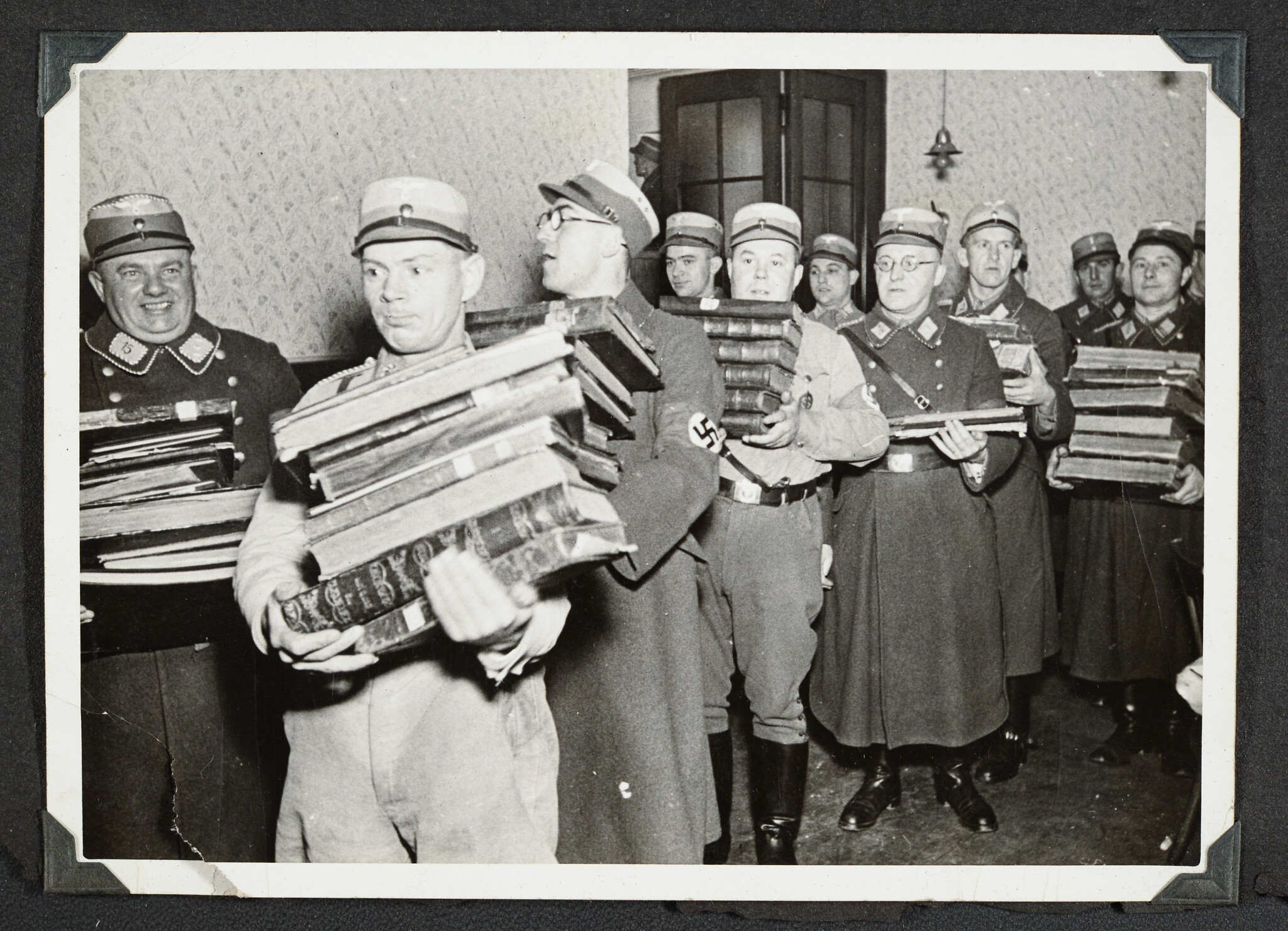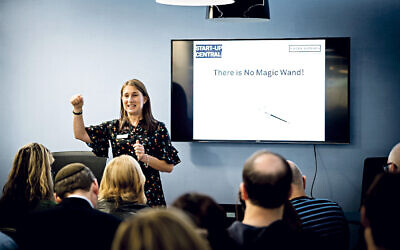OPINION: False historical equivalence empties Nazi era of its unique horror
Don’t trivialise Nazism to score political points, warns authorJeremy Havardi.
Jeremy Havardi is a freelance journalist and author
Last week’s comments by Gary Lineker, referencing the government’s proposed illegal migration bill, caused a storm of protest, writes Jeremy Havardi for Jewish News.
In his tweet, the ex-footballer decried ‘an immeasurably cruel policy directed at the most vulnerable people in language that is not dissimilar to that used by Germany in the 30s’.
One must be blind to assume that he was referring to the excesses of the Weimar Republic.

To believe that the language of British politicians today over immigration is similar to that of the Nazis is naïve and ignorant. Jews were referred to as bacteria and microbes, as parasites feeding on a ‘host’ nation, as sexual predators lusting after German women and as sub-humans intent on destroying the German nation.
No British politician today would survive such a verbal onslaught against a minority.

Neither were Jews in the 1930s targeted for being unwanted refugees. They were citizens of Germany with deep and long-standing ties to the country and were attacked simply because they were Jewish. The hateful language of the Nazi state came from a genocidal regime that was engaged in systematic eliminationism: first to demonise and isolate Jews within Germany, then to eliminate them from Germany and finally to destroy them altogether.
While the government’s new migration bill is controversial, and while some hostile language has (shamefully) been directed at refugees, it is not the case that British ministers are agents of a would-be genocidal state. A better reference point might have been Britain’s own right-wing press in the 1930s or Australia’s current immigration policies.

Some might argue that celebrities cannot be expected to offer sophisticated political analysis. Perhaps so, but this is no excuse. High profile figures have millions of followers and the historical distortions to which they allude can be hugely influential.
The problem with Lineker’s false analogy is that it serves to de-historicise the Nazi era. Instead of seeing it as a complex period in the past with unique policies aimed at particular victims for very specific reasons, that era becomes a shorthand for more generalised forms of perceived immorality, cruelty and intolerance.
The main point of referencing Hitler or the Nazis is not to understand historical events in their own right, something that would lead to valuable warnings about the danger of genocidal regimes, one-party states or antisemitism, but to attack disagreeable political events of the present, no matter how distant they are from the reality of Nazi Germany.
Sadly, there seems to be no shortage of British policies that are supposedly a reincarnation of Hitlerite hatred. Amid the Lineker furore, Alistair Campbell was tweeting that the ‘abolition of BBC singers and cuts to BBC orchestras was ‘another resonance with 30s Germany’.
Discussing Brexit, British journalist India Knight wrote of her battles with obtaining settled status in the UK, writing: ‘I now have a letter from the Home Office that I carry about on my phone, in case I need to show it to someone, like a Jew in late 1930s Berlin.’

On another occasion, Labour MP David Lammy implied that resisting the Tory ERG (European Research Group) was akin to fighting the appeasement of Hitler while former UKIP leader Gerard Batten suggested that the Nazis ‘drew up’ the basic plan for the EU.
This perverse mangling of history has also seeped into American discourse. In 2019 Alexandra Ocasio-Cortez slated the immigration policies of the Trump administration by declaring that the US was ‘running concentration camps’ on the country’s southern border.
CNN anchor Christiane Amanpour offered her own distortion of the historical record on a show from 2020 on the anniversary of Kristallnacht. Invoking the ‘attack on fact, knowledge, history and proof’ in that ‘tower of burning books’, Amanpour claimed that there had been ‘four years of a modern-day assault on those same values by Donald Trump.’ Amanpour later expressed contrition for her remarks after a barrage of condemnation.
These false historical equivalences empty the Nazi era of its unique horror and importance. They offer a dangerous trivialisation of the past and insult the victims of racial persecution and dictatorship. There is a simply lesson here. One should invoke history to learn its lessons, not to score cheap political points.
- Jeremy Havardi is director of international affairs for B’nai B’rith UK, a journalist, historian and long standing political activist.

Thank you for helping to make Jewish News the leading source of news and opinion for the UK Jewish community. Today we're asking for your invaluable help to continue putting our community first in everything we do.
For as little as £5 a month you can help sustain the vital work we do in celebrating and standing up for Jewish life in Britain.
Jewish News holds our community together and keeps us connected. Like a synagogue, it’s where people turn to feel part of something bigger. It also proudly shows the rest of Britain the vibrancy and rich culture of modern Jewish life.
You can make a quick and easy one-off or monthly contribution of £5, £10, £20 or any other sum you’re comfortable with.
100% of your donation will help us continue celebrating our community, in all its dynamic diversity...
Engaging
Being a community platform means so much more than producing a newspaper and website. One of our proudest roles is media partnering with our invaluable charities to amplify the outstanding work they do to help us all.
Celebrating
There’s no shortage of oys in the world but Jewish News takes every opportunity to celebrate the joys too, through projects like Night of Heroes, 40 Under 40 and other compelling countdowns that make the community kvell with pride.
Pioneering
In the first collaboration between media outlets from different faiths, Jewish News worked with British Muslim TV and Church Times to produce a list of young activists leading the way on interfaith understanding.
Campaigning
Royal Mail issued a stamp honouring Holocaust hero Sir Nicholas Winton after a Jewish News campaign attracted more than 100,000 backers. Jewish Newsalso produces special editions of the paper highlighting pressing issues including mental health and Holocaust remembrance.
Easy access
In an age when news is readily accessible, Jewish News provides high-quality content free online and offline, removing any financial barriers to connecting people.
Voice of our community to wider society
The Jewish News team regularly appears on TV, radio and on the pages of the national press to comment on stories about the Jewish community. Easy access to the paper on the streets of London also means Jewish News provides an invaluable window into the community for the country at large.
We hope you agree all this is worth preserving.






















